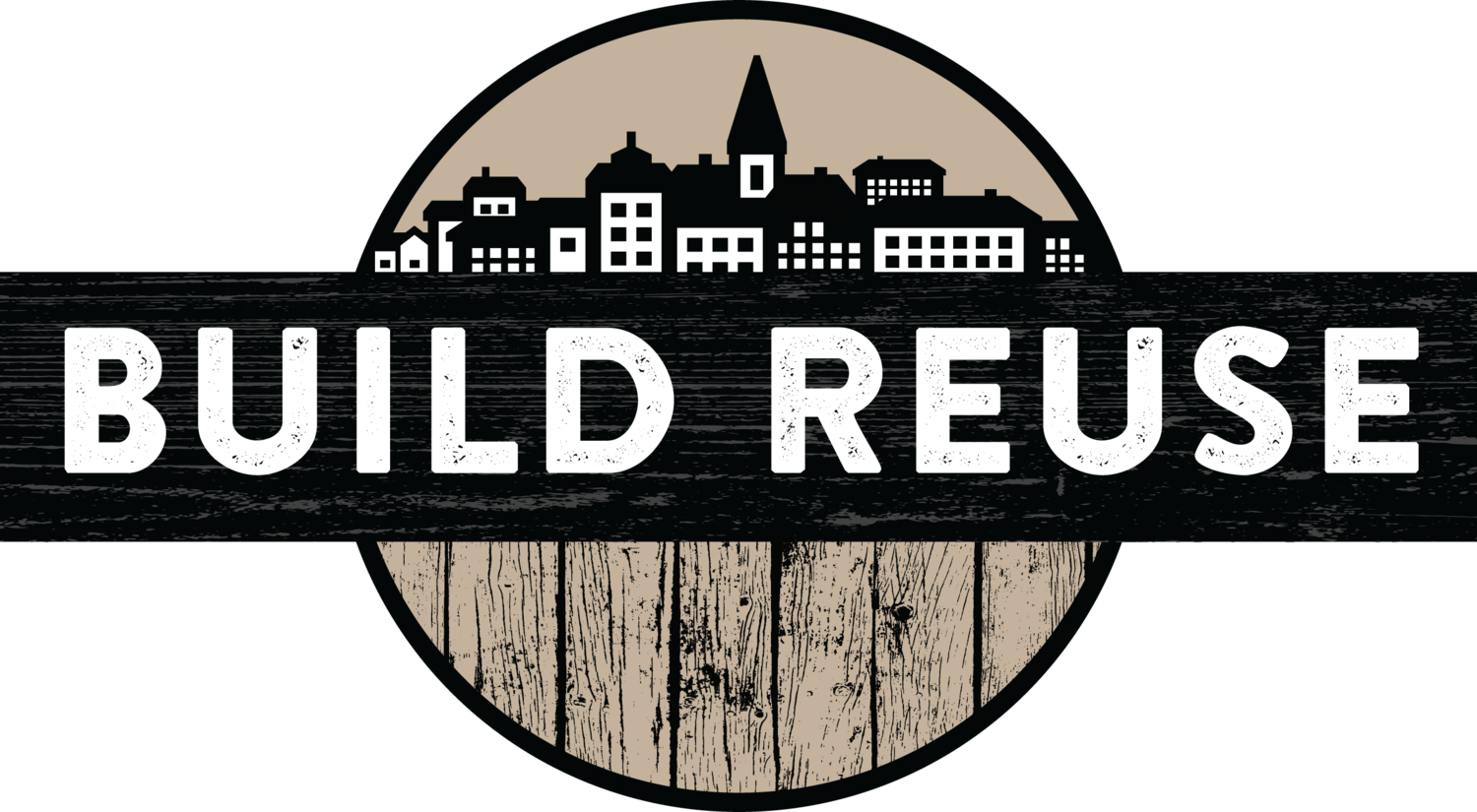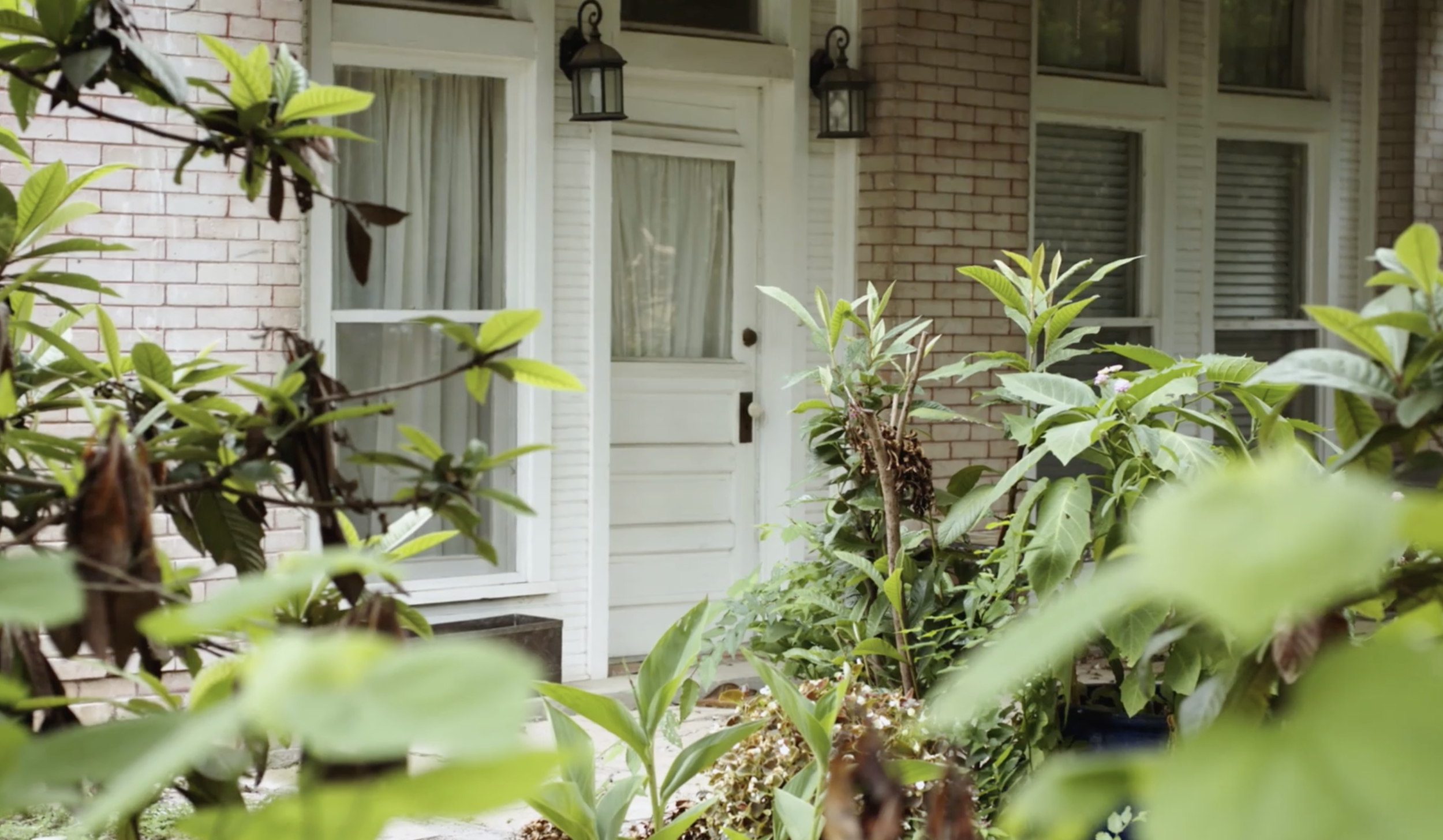
2021 Deconstruction + Reuse Conference
Schedule At-A-Glance
Tuesday, October 19
11:00AM - 5:00PM ET
All times are listed in Eastern.
11:00 - 11:30 AM
Welcome Address
11:30 AM - 12:30 PM: Opening Keynote
Keynote A: Felix Heisel
Felix Heisel is an architect and academic working towards the systematic redesign of the built environment as a material depot of endless use and reconfiguration. At Cornell University, he holds the position of Assistant Professor and acts as the Director of the Circular Construction Lab.
12:30 - 12:45 PM: Break
12:45 - 1:30 PM: Concurrent Session Presentations
Session 1.1: Collaborative Mapping of Deconstruction and Reuse Ecosystems
Yarden Harari (CallisonRTKL - New York City), Amanda Kaminsky (Building Product Ecosystems - New York City), Allison Arlotta (Architecture Research Office - New York City), Melissa Wenzel (Minnesota Pollution Control Agency)
Session 1.2: Circular Economy in the Built Environment
Andrew McCue (Metabolic - Amsterdam, Netherlands)
Metabolic are international thought leaders and experts in the circular economy. Andrew McCue will provide an introduction to the circular economy, how it applies to buildings and the built environment, and examples of tools and approaches to make buildings more circular, including Urban Mining, Design for Disassembly, and Tendering/Procurement for increased circularity.
Session 1.3: How Architects and Project Partners Can Drive Reuse by Designing for Deconstruction: Two Case Studies
Brandie K Townsend (Gershman Brickner & Bratton, Inc. - Washington, DC), Pamela Francis (Schott Design, Inc)
This session will highlight how architects and project partners can drive reuse in the commercial design sector by designing for deconstruction and planning for its success. This session will feature two case studies that cover the creation and successes of commercial and retail reuse platforms and strategies.
Session 1.4: How Retail Metrics and Merchandising Can Strengthen Building Material Sales
Julian Pastin (Rebuilding Exchange - Chicago, IL)
There are myriad benefits to bringing traditional retail metrics and merchandising concepts to a reuse environment. This session will cover what metrics are important, how to develop reporting with limited systems resources, how frequently metrics should be reviewed, and how to interpret data to develop concrete actions for your reuse warehouse, storefront, or organization.
1:30 - 1:45 PM: Break
1:45 - 2:30 PM: Concurrent Session Presentations
Session 2.1: Deconstruction for reuse of modern heritage’s discards
Susan Ross (Carleton University - Ottawa, ON, Canada), Alison Creba (Local Technique/Artscape Wychwood Barns - Toronto, ON, Canada)
This session will present the speakers’ research on the specific issues that arise in the deconstruction and/or demolition of modern (post war/20th century) buildings to salvage and reuse their materials. Considering both technical and social obstacles, it will explore questions such as scale, material assemblies, toxicity, codes, as well as values perception, obsolescence, and uncontrolled development culture. Followed by a facilitated discussion, the goals of this session will include helping define objectives, sources, and strategies for research, data and policy.
Session 2.2: Chicago Waste Strategy
Bill Schleizer (Delta Institute - Chicago, IL)
This presentation will share Delta Institute’s recent City of Chicago Waste Strategy, with a particular focus on recommendations for reducing C&D debris and strengthening opportunities for building material reuse in Chicago.
Session 2.3: Using Academic Civic Engagement to Explore and Promote Alternatives to Structure Demolition
Paul Jackson, Matt Rohn, Lauren Sherman, Harris Kramer (St. Olaf College; Waste & Materials Working Group, City of Northfield, MN)
This session reports the results of a higher education-local government partnership that serves as a model for how such joint ventures can benefit a city in developing better environmental practices while leveraging civic engagement to enable student learning of sound environmental practices.
Session 2.4: Online Sales For Reused Materials
Amber Barbee (ReCapturit - Seattle, WA)
This presentation will discuss examples of online networks and marketplaces and the new audiences they have gained in response to the pandemic. Examples will include retailers who used online product offerings and curb side pick up helped to keep their businesses open, and organizations working hard to pave the way for the future of the online marketplace of reused, repurposed, and reclaimed materials.
2:30 - 2:45 PM: Break
2:45 - 3:30 PM: Concurrent Session Presentations
Session 3.1: The Sexy (and Not-So-Sexy) Lives of Salvaged 2x4’s
Preston Browning and Rachel Browning (Salvage Works - Portland, OR), Kinley Deller (King County GreenTools)
As the only operation in the PNW retailing reclaimed wood and having a full service custom woodshop, Salvage Works has reimagined reclaimed wood many times over in the last decade, selling its products both nationally and internationally. Equally important is the effective storytelling and marketing that drive sales of each product developed. This discussion focuses on reclaimed products developed over the years for multiple markets that appeal to regional design trends. The King County GreenTools program has been working to kick-start a regional circular economy for wood and increase the reuse of reclaimed lumber through changes to state building codes and supporting local business efforts to turn old buildings into new building components.
Session 3.2: Reuse Innovation Center: The Future of Reuse
Dave Bennink (Building Deconstruction Institute/Re-Use Consulting - Portland, OR)
Currently, the reuse industry consists of mostly small businesses and nonprofits who face the struggle of high operational costs, unstable supply and demand, and economies of scale. Reuse Innovation Centers pool the resources of multiple reuse businesses into a single facility allowing them to cooperate in the creation of a local circular economy. The presentation will focus on the basic operations of Reuse Innovation Centers and the services that they can provide - and share how you can bring one to your own city.
Session 3.3: Michigan State University’s Shaw Lane Power Plant Brought Back to Life
Kevin Marshall, AIA (Integrated Design Solutions - Troy, MI)
The Shaw Lane Power Plant on MSU's East Lansing Michigan campus was originally constructed in 1946 and decommissioned in 1976, sitting dormant ever since. In 2019 a major renovation and addition began construction that has transformed the former coal fired power plant into a student inspiration hub anchoring the University's new STEM teaching facility. This presentation will show participants one way to resurrect and reuse a long vacant structure, salvaging the building and its components while providing a center for learning.
Session 3.4: Rethinking the Carbon Story for Building Reuse
Eric Corey Freed, RA, LEED Fellow, EcoDistricts AP, LFA (CannonDesign - Portland, OR)
This session will explore a process for evaluating existing facilities and looking at them through the lens of embodied carbon. Based on the presenter’s insight garnered from working with Fortune 500 clients, the session will discuss how organizations, companies, and municipalities can accelerate their plans for sustainability, climate, carbon, equity, or resilience, while addressing the organizational limitations of waste, inefficiency, and fear.
3:30 - 3:45 PM: Break
3:45 - 5:00 PM: Members Meeting & Awards
Open to all conference attendees. Build Reuse membership not required!
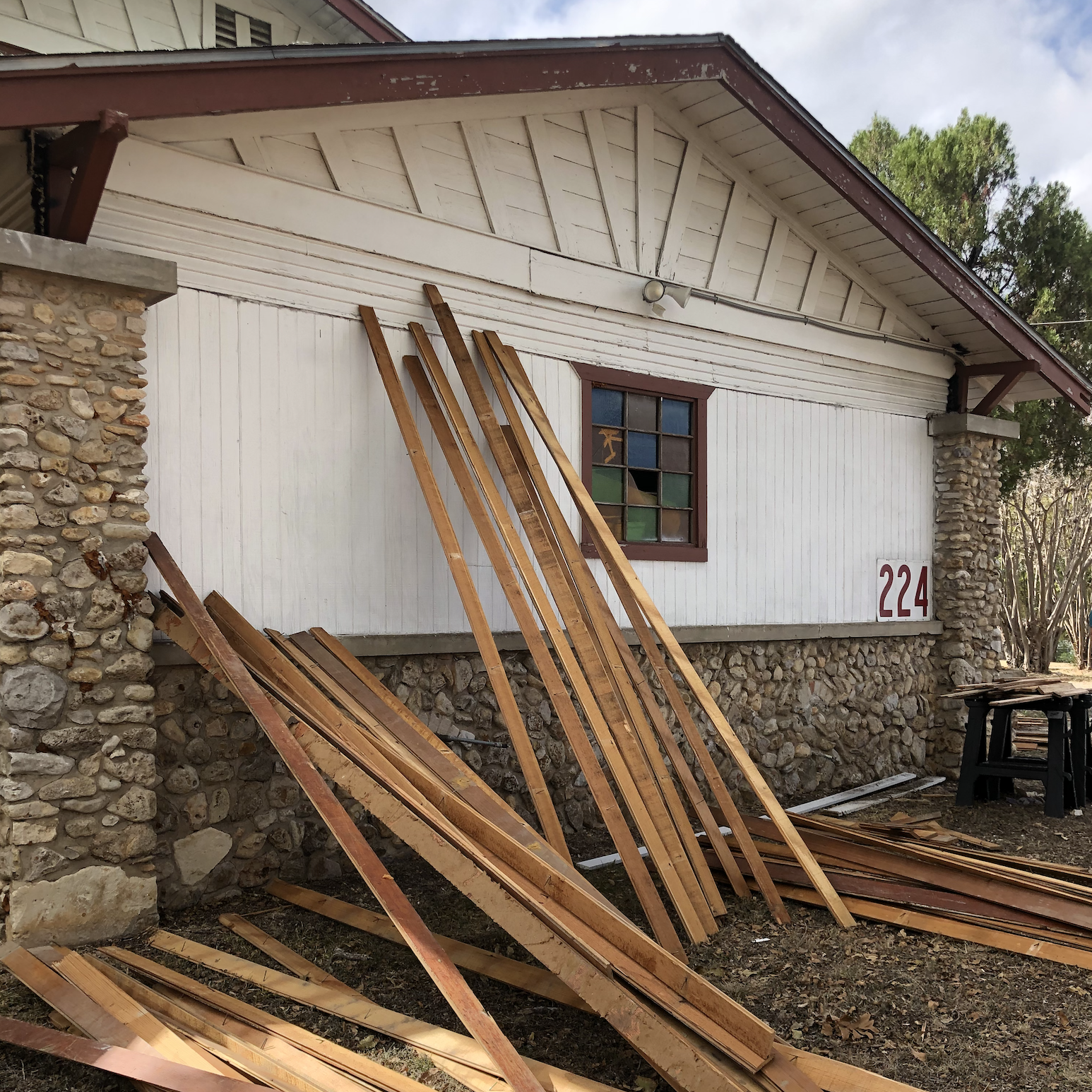
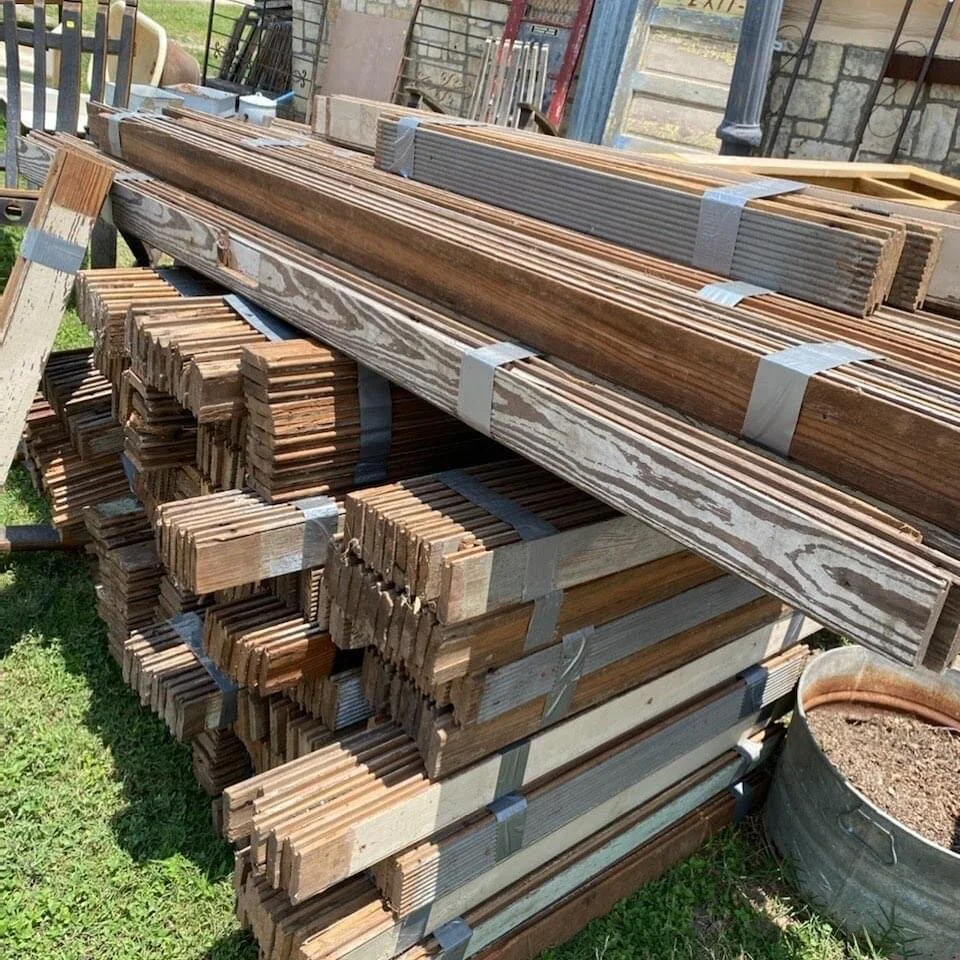
Wednesday, October 20
11:00AM - 5:00PM ET
All times are listed in Eastern.
11:00 - 11:05 AM
Introduction to Day 2 / Housekeeping
11:05 AM - 11:50 AM: Concurrent Session Presentations
Session 4.1: Building Capacity and Developing Plans for a Zero Waste Future
Susie Westrup (TRUE Program, US Green Building Council - Washington, DC)
This session on the TRUE (Total Resource Use and Efficiency) certification program and TRUE Advisor professional credential will provide you with the tools to design and implement your zero waste plan. Learn about successful strategies including employee engagement, zero waste purchasing and going beyond recycling. Discover how to maximize your materials and resources through hauler contracts, rightsizing and understanding commodity markets.
Session 4.2: The Importance of Life Cycle Assessment in the Architectural Salvage Industry
Grace Cognasso (The RE Store - Bellingham, WA)
Life Cycle Assessment (LCA) is a powerful tool that evaluates the environmental impact of industrial processes from the initial gathering of raw materials to the disposal of products. For industries trying to advance the circular economy, LCA is necessary to demonstrate the environmental impacts of reuse. This presentation will cover a recent study that found that by diverting building material from the landfill, the RE Store is able to operate in a carbon deficit - and illustrate tools available to further educational and informational goals of reuse centers and architectural salvage organizations.
Session 4.3: From Trash to Treasure: Giving Landfilled Household Items New Life
Melissa Wenzel (Minnesota Pollution Control Agency) and Sandy Gunderson (Becker County, MN)
Built Environment Sustainability Administrator, Melissa Wenzel, will provide an overview of Minnesota’s sustainable building material management goals and initiatives, and provide examples of how similar initiatives in Minnesota have been or could be successful. Learn how Minnesota’s initiatives could be adapted to your city, region, or state to help advance your building material management and reuse goals.
Session 4.4: Climate Action Network Knowledge Exchange Amongst Build Environment Professionals: A Key for Driving Reuse
Taleen Josefsson (Chetwoods / Architects Climate Action Network - London, UK)
The role of the architect is similar to the spider in the web: architects are typically the mediator between the client, the design, the materials, and the constructor. Using the recent Circular Series hosted virtually by the UK-based Architects Climate Action Network as a case study, this session will explore the role of professionals in the built environment to push forth building material reuse through accessible open discussion, collaboration, and knowledge exchange.
11:50 AM - 12:00 PM: Break
12:00 - 12:45 PM: Concurrent Session Presentations
Session 5.1: Trash to Treasure: 3D Printing Circular Economies
Samantha Snabes (re:3D - Austin, TX)
re:3D is supporting multiple pilots to explore more circular economies using local plastic trash that would otherwise be discarded in landfills. This session will discuss transforming local plastic garbage into desirable objects and selling reclaimed furniture made from 3D printed garbage combined with excess Habitat for Humanity ReStore materials. This collaboration enables the possibility for new job creation, revenue for the ReStore, and value from waste that would otherwise be unused. This session will also provide similar examples of pilots using manufacturing waste to create objects of internal value.
Session 5.2: Deconstruction Ordinances: Challenges and Opportunities
Ted Reiff (The Reuse People - Bay Area, CA)
This session is intended as a guide to the design, launch, and implementation of a deconstruction ordinance. It will examine such ordinances from the position of the implementor (municipality) and local non-governmental partners, including contractors and reuse facilities.
Session 5.3: The Plant: A Replicable Model for Industrial Development
John Edel (Bubbly Dynamics - Chicago, IL)
This session will illustrate the efficiencies realized in creatively repurposing a former meatpacking facility as a production center for new kinds of small food businesses. This facility, now called The Plant, is a striking example of the opportunities possible through the reuse of existing buildings and materials.
Session 5.4: Refugee Shelter Tarps from Repurposed Billboards
Scott Key (Every Shelter - Houston, TX)
Working with an advisory council of billboard operators, engineers and relief agencies, Every Shelter designed a billboard tarp that repurposes this waste to a better-than-new product that protects brand identity and provides families more durable protection. This presentation will cover how localizing production minimizes transportation distances, reduces carbon footprint, and activates latent labor markets where products are produced and received.
12:45 - 1:00 PM: Break
1:00 - 2:00 PM: Keynote
Keynote B: Google’s Spruce Goose Team
Lauren Sparandara (Google), Christopher Conaway (ZGF), Andrea Galvin (GPA)
Originally built in 1943 for the construction of Howard Hughes’ H-4 Hercules airplane, this 450,000SF hangar now houses a new technological marvel. Restored and transformed, the seven-story, 750-foot-long structure houses workspace, meeting, and event spaces, and amenities for Google employees in the LA area. Given Google’s commitment to creating inspiring spaces and experiences for its employees, the project required an innovative design approach. Learn about Spruce Goose’s reuse at multiple scales.
2:00 - 2:15 PM: Break
2:15 - 3:00 PM: Concurrent Session Presentations
Session 6.1: Emerald Ash Borer & ASHED
Jason Grifiths (University of Nebraska-Lincoln)
This session explores the use of "waste" timber generated by the Emerald Ash Borer (EAB) beetle through its integration into construction. It will showcase the ASHED building for the City of South Sioux, Nebraska, as one example of a "resilient" response to an unplanned material surplus brought on by environmental change, and how more extended history of pathogens (Dutch Elm disease, Mountain Pine Beetle, etc.) within the lumber industry requires a systematic approach to the reuse of infected wood generally rather than each instance treated as a case-by-case anomaly.
Session 6.2: Treasure in the Walls: Findings from San Antonio Deconstruction Analysis
Katlyn Cotton and Alyssa Frystak (PlaceEconomics), Stephanie Phillips (City of San Antonio)
In 2020, the San Antonio Office of Historic Preservation commissioned a study to analyze the potential impact of a proposed deconstruction ordinance by measuring the economic and environmental cost of demolition. Using 10 years of demolition data, this study calculated the volume and value of materials that could have been diverted from landfills and the retail impact of increased material supply. This session will share policies, tools, and recommendations made in the study, and will discuss the types of localized data that can help further your community’s reuse goals.
Session 6.3: Deconstruction Appraisals
Leslie Suh (Leslie Suh Appraisals LLC - Bay Area, CA), Jessica Marschall (The Green Mission), Peter Curran (H. Peter Curran L.L.C. - Appraisals), Alexandra Nicholaides (IRS Senior Counsel), and Michael Storey (Michael D. Storey Appraisers & Consultants)
This session will discuss deconstruction appraisals, including the eligibility for and process of offsetting costs through tax deductions. The presenter will cover appraisal steps, requirements, qualifications, elements, valuation methodology, and reporting.
Session 6.4: Bay Area Deconstruction Workgroup Model
Timonie Hood (EPA Region 9 - Pacific Southwest), Nicole Tai (The Reuse Alliance/GreenLynx)
The Bay Area Deconstruction Workgroup was launched in late 2017 at an in-person event connecting experts interested in deconstruction and building materials reuse from government, and deconstruction and reuse businesses and nonprofits. The group met quarterly in-person at EPA’s San Francisco Office and then moved online where the interest really took off, and now connects with over 450 contacts from across the nation, Canada, Germany, South Africa, and New Zealand. The presenters will share lessons learned in starting and building a low-cost Deconstruction Workgroup, including tips for hosting for in-person, hybrid, and online meetings.
3:00 - 3:15 PM: Break
3:15 - 4:00 PM: Concurrent Session Presentations
Session 7.1: Art and Creative Reuse
Rachel Weaver (SCRAP Creative Reuse - Ann Arbor, MI, Baltimore, MD, Portland, OR, Richmond, VA)
Take a series of virtual tours with SCRAP Creative Reuse! This session will show footage and photos from creative reuse centers in Portland, OR, Ann Arbor, MI, Baltimore, MD, and Richmond, VA. These locally operated creative reuse centers vary in size from the largest (>10,000 square feet) to the smallest (<1,000 square feet). This session will showcase what creative reuse centers can look like, as well as the multitude of ways they can vary, and creative ideas they utilize given their scope of operations.
Session 7.2: Lifecycle Building Center & EPA Team Up on Deconstruction Education
Michelle Wiseman (City of Atlanta), Shannon Goodman (Lifecycle Building Center), Christina Bitten (EPA Region 4 - Southeast)
Lifecycle Building Center, EPA Region 4, & the City of Atlanta team up to make an impact in the Southeast.
Session 7.3: Research Results: Social Capital and Networks of Exchange in Reuse Markets
Dr. Cindy Isenhour (University of Maine)
This session will present research results from a five year study on reuse exchange networks. Learn about some of the social benefits of localized reuse networks.
Session 7.4: Resiliency Through Reuse in Appalachia
Jacob Israel Hannah (Coalfield Development - Wayne, WV)
Learn how a collection of Appalachian communities are collaborating across state and county lines to form a network of reuse practitioners and participants. This democratization of materials processing has allowed every type of organization to be involved in ways that create new products, new jobs, and lowered costs to participate in renewable solutions.
4:00 - 4:15 PM: Break
4:15 - 5:00PM: Concurrent Session Presentations
Session 8.1: F-Waste
Brandi Susewitz (Clear Office - San Jose, CA)
Only 1% of commercial office furniture gets a second life, even though it’s built to last. This session will highlight a brand new, industry-changing platform that will finally help get a handle on this problem, including a platform demo.
Session 8.2: A Circular Economy is a Regional Re-Use Economy
Jim Schulman (Alliance for Regional Cooperation - Washington, DC)
The desire to "circularize" economic activities is generally focused on the benefits of focusing on material and energy life cycles. But it also leads, quite beneficially, to the regionalization of economic activities. In a 15 minute slide presentation followed by Q&A, Jim Schulman, AIA, the Founder of Community Forklift and the Alliance for Regional Cooperation, will explore these ideas, and how they may impact the re-use industry.
Session 8.3: Encouraging Architects to Incorporate Reused Building Materials: Focus on Aesthetics
Walter Cain (WaCa Design - New York City)
Reusing salvaged parts of buildings is an obvious strategy for minimizing embodied carbon in new construction and diverting landfill waste. But this is easier said than done. This presentation will explore the aesthetics of reusing salvaged materials, hoping to spark conversations which inspire designers to look at these materials with fresh eyes.
Session 8.4: CR0WD: Making the Case for Collaboration
Gretchen Worth (CR0WD: Circularity, Reuse, Zero Waste Development - Ithaca, NY), Felix Heisel, Jennifer Minner, Christine O'Malley, Shriya Rangarajan
The Circularity, Reuse, and Zero Waste Development (CR0WD) task force works across New York State to elevate deconstruction, salvage and reuse as alternatives to business-as-usual demolition, so that communities can realize the environmental, cultural and economic benefits of prolonging the lifespan of buildings and reusing building materials and architectural elements. Through discussion of examples, CR0WD aims to present actionable recommendations that others can use in their communities to further collaborative deconstruction partnerships.
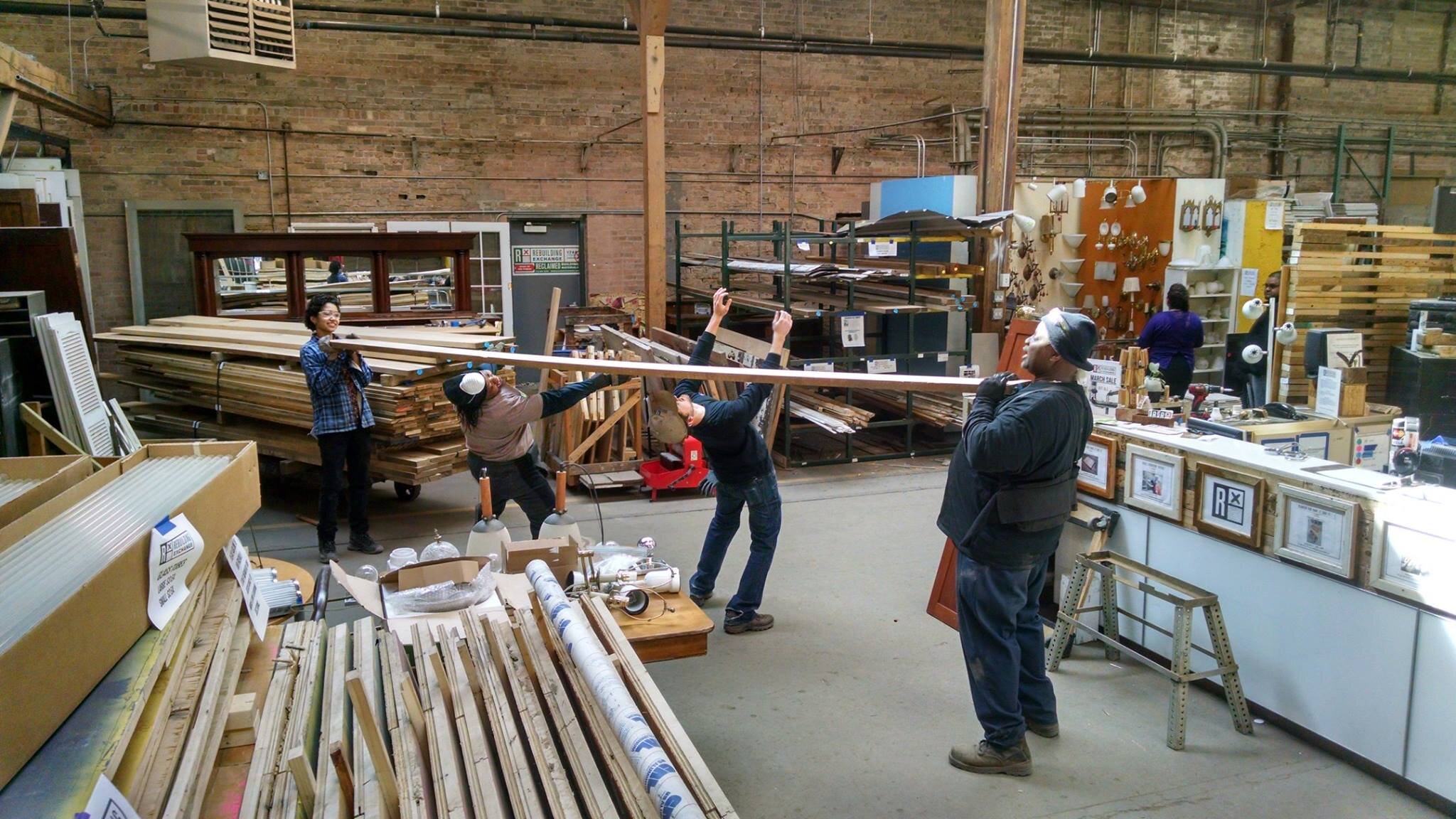
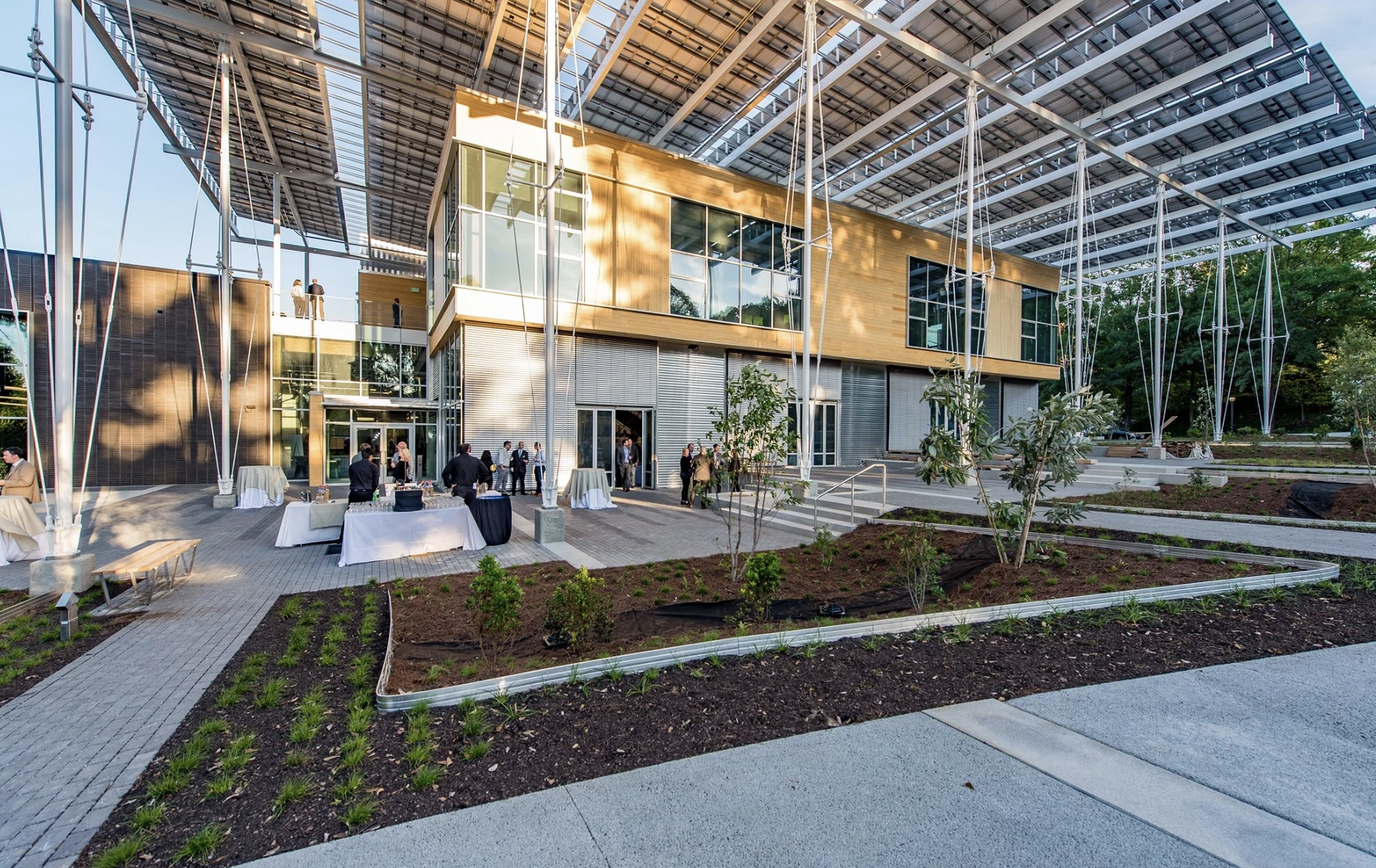
Thursday, October 21
11:00AM - 5:00PM ET
All times are listed in Eastern.
11:00 - 11:05 AM
Introduction to Day 3 / Housekeeping
11:05 AM - 12:00 PM: Keynote
Keynote C: Dr. Elma Durmisevic
Dr. Elma Durmisevic is based in Amsterdam and is the Founding Director 4D architects BV and the Creator of Laboratory for Green Transformable Buildings (GTB Lab). She is the head of research for EU Horizon and the BAMB (Buildings as Material Banks) project.
12:00 - 12:45 PM: Concurrent Session Presentations
Session 9.1: Jumpstarting Reuse in Commercial Buildings
Andrew Ellsworth, Frances Yang (All For Reuse)
In this session, All for Reuse partners will describe the creation of a Bay Area Owners Alliance and workshop series used to engage, educate, and call upon many of the region’s largest building portfolios holders to make a commitment to reuse of existing building materials. Presenters will share and explain how they used several resources to show how others can form regional hubs and jumpstart reuse with their own local partners. Presenters will identify what they have found successful, where they have faced hurdles, and what work they think still needs to be done, making sure to leave time for dialogue with participants about tackling this real challenge.
Session 9.2: C&D Material Diversion, Data Collection, and Applied Research
Neil Kaufman (National Center for Craftsmanship - Fort Collins, CO)
This presentation will share, discuss, and strategize a recently-funded deconstruction research project that will be performed over the next 18 months in Colorado, which will serve as R&D case studies whereby forecast modeling for material streams from unwanted building removal (e.g. demolition, deconstruction, or a combination of the two) will be developed. As the first project is anticipated to kickoff in the Fall of 2021, NCC invites interested participants to contribute to and improve this body of research with suggestions, tactics, data, and strategic partnering during this session.
Session 9.3: How to Build Diverse Fundraising Strategies for Your Nonprofit
Aina Gutierrez (Rebuilding Exchange - Chicago, IL)
Growing your social enterprise with only earned revenue streams can be challenging. This session will showcase how Evanston Rebuilding Warehouse/Rebuilding Exchange has grown their fundraising strategies over last few years to strengthen their impact and engage their community. Interactive breakout rooms will address various fundraising strategies based on attendee interest.
Session 9.4: Accounting for Carbon in Materials Reuse at the Kendeda Building for Innovative Sustainable Design
George Berghorn (Michigan State University)
The Kendeda Building for Innovative Sustainable Design is a 37,000 square foot education, research, and outreach building at Georgia Tech. This session will cover the comprehensive salvage and reuse strategy developed by the project’s design and construction team. The presenters will focus on not just the beautiful and functional salvaged building components, but the carbon accounting behind these materials to showcase how form, function, and higher-ordered sustainability can work together.
12:45 - 1:00 PM: Break
1:00 - 2:45: Solutions Sessions
Our signature Solutions Sessions form small groups to generate action-oriented ideas on topics of importance. The workshop-style sessions are followed by a collective report out to share knowledge and galvanize action beyond the conference. We’ve selected the following five timely areas that our membership commonly identifies as needing solutions to help promote a more circular building ethic.
Session Workshop 1: Commercial Reuse
Session Moderators: Garry Cooper, Daniel Kietzer, CeCe Smith (Rheaply)
Session Workshop 2: Reimagining Reuse Supply Chains
Session Moderators: Yarden Harari (CallisonRTKL), Allison Arlotta (Architecture Research Office), Amanda Kaminsky (Building Product Ecosystems), Melissa Wenzel (Minnesota Pollution Control Agency)
Session Workshop 3: Disaster Debris Deconstruction & Reuse
Session Moderators: Kristina Torres and Melissa Kaps (EPA Office of Resource Conservation and Recovery), Timonie Hood (EPA Region 9 - Pacific Southwest)
Session Leaders:
Brad Guy, Architect, NCARB, AIA (Material Reuse)
Shawn Wood, Construction Waste Specialist (City of Portland, OR)
James Slattery, Construction and Demolition Zero Waste Coordinator (San Francisco Department of the Environment)
Dr. Juliano Calil, Adjunct Professor (Middlebury Institute of International Studies); Co-Founder (Virtual Planet Technologies LLC)
Session Workshop 4: Urban Wood*
*awaiting confirmation
2:45 - 3:30 PM: Solutions Sessions Report Out
3:30 - 3:45 PM: Break
3:45 - 4:45 PM: Closing Keynote
Keynote D: Dr. Garry Cooper
Dr. Garry Cooper is the co-founder and CEO of Chicago-based Rheaply. Launched in 2016, Rheaply’s Asset Exchange Manager (AxM) is an easy way for professionals to share materials & resources with anyone in their industry. By connecting leading research institutions, Fortune 500 companies, government, school systems, nonprofits, startups, and other organizations in between, Rheaply is creating a shared economy for innovation.
4:45 - 5:00 PM: Conference Wrap Up
Closing remarks & thank yous from Build Reuse!
